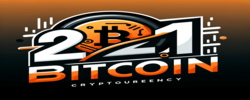The Dfinity Foundation has launched a fund of around $223 million to support development on its decentralized Internet Computer network.
Zurich-based Dfinity Foundation has announced a fund worth CHF 200 million, or around $223 million, to support development on the Internet Computer — a blockchain-based decentralized network with wildly ambitious plans to one day “replace” much of the internet.
The non-profit scientific research organization announced “The Developer Ecosystem Program” on May 26, and is now accepting applicants for development grants.
These grants will operate separately from the $14.5 million Beacon Fund, which was announced in September 2020, and is a dedicated venture fund that backs developers creating open internet services on the platform.
In a blog post announcing the new grants, Dfinity founder and chief scientist, Dominic Williams, stated:
“Our aim is to support the reimagination of all systems and services in new forms using smart contracts on an infinite public blockchain, and nothing else.”
Dfinity was founded in 2014 by entrepreneur Dominic Williams and has seen investment from Andreessen Horowitz and PolyChain Capital, who backed the project in a $105 million funding round in 2018.
The Internet Computer’s aim is to replace much of the internet with a self-governing blockchain based decentralized platform, that can facilitate smart contracts at web speed directly to users, with unlimited scalability, while offering greater efficiency and usability that systems built on traditional infrastructure.
The Internet Computer relies on a decentralized Web 3.0 cloud-like protocol dubbed the Internet Computer Protocol, or ICP, that utilizes a combination of data centers and high-end node machines, or validators, across the globe — to create a network of computers to host this new version of the public internet.
The ICP is “intended as a complete replacement” for existing internet infrastructure, Williams told Forbes in 2019.
Dfinity proposes decentralization by introducing a consensus model dubbed the Threshold Relay, which is accompanied by its Network Nervous System, or NNS — algorithmic software that governs the Internet Computer, economics, and structure.
The Internet Computer, or ICP, token enables participation in governance through staking ICP in the NNS and by locking them inside “voting neurons,” with the longer a holder stakes ICP, the more voting power they receive.
Dfinity’s grandiose vision for the ICP has been greeted with a mixed reaction among many in the crypto community, with questions raised over how decentralized the project’s governance actually is.
In an illustrative thread on the “r/dfinity” subreddit on May 25, user “u/Additional_Plant” noted “I don’t doubt that it is a powerful, game changing project. But that doesn’t mean it’s good for us common folks,” adding that:
“There are too many red flags. For all intents and purposes, Dfinity have total control through the NNS. Is it really a crypto? Not really. Is it actually decentralized? Far from it.”
Coinbureau also released a popular review and breakdown of ICP on Youtube on May 23, and highlighted various issues with privacy and decentralization.
The breakdown raised issues such as Dfinity’s apparent “total control” over the network, the undisclosed amount of power the NNS has over governance, and the potential ramifications of users handing over their private data to the project, as they are required to create a single “Internet Identity” to operate on the network.



